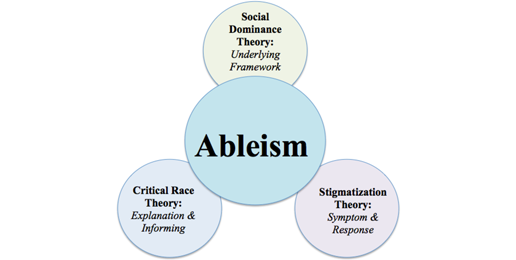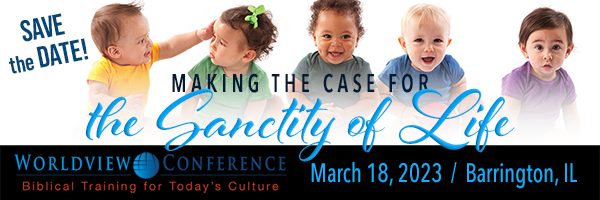
Warning: you are about to encounter an onslaught of politically incorrect words. The following five phrases have been labeled “potentially harmful” by academia at the highest level, so interact with them at your own peril. Ready?

“Stand up meeting.”
“Quadriplegic.”
“Walk-in appointment.”
“Basket case.”
“Sanity check.”
Whew! Did you survive? Good, so did I. But unfortunately, I am not making this up. According to a Stanford University website, it is considered “harmful language” to use the phrase “stand up meeting” to refer to your next brief get-together. Why? Because it is “ableist language that trivializes the experiences of people living with disabilities.”
Just a couple weeks ago, Stanford’s Elimination of Harmful Language Initiative released a 13-page list detailing dozens of politically incorrect words and phrases and including a column of substitutes for the forbidden locutions. The Initiative’s purpose is to “eliminate many forms of harmful language, including racist, violent and biased . . . language in Stanford websites and code.” We are told in the list’s preamble that the purpose is to “educate people about the possible impact of the words we use.” It purportedly was neither “attempting to assign levels of harm to the terms on this site” nor “attempting to address all informal uses of language, “but the implication is obvious: this index is a primer on what specific words should be tossed in the waste bin by the Stanford IT community.
While the categories of racist and gender-based language were largely unsurprising, one category caught me off guard: “ableist” language, which is language offensive to or demeaning those suffering from disabilities. While I agree that no one should be mocked for their disabilities, that doesn’t seem to be exactly what Stanford has in mind. Let’s look at a couple examples.
Referring to a “blind study” is harmful because it “unintentionally perpetuates that disability is somehow abnormal or negative, furthering an ableist culture.” The preferred term is “masked study.”
Wait, wait. Are we to care for the needy? Absolutely. Are we to demean their afflictions? Absolutely not. But I’ve never thought I’ve been demeaning blind people when I refer to a blind study, and I guarantee you none of my audience has thought I have been, either.
Stanford’s reply might be that I am not necessarily disparaging blind people, but I am instead implying that “disability is somehow abnormal or negative,” because the word “blind” often carries a negative connotation in many other contexts, such as this one. An ironic point to raise for this particular word—since blind studies are supposed to be a positive thing—but there’s a deeper point to raise.
Don’t misinterpret me, but isn’t disability kind of abnormal, and even somewhat negative, by definition? My grandmother needs a walker and/or wheelchair to move around, and I know she’d give a lot to be able to walk like she could when she was twenty. Disability is both abnormal and less-than-ideal, and making that statement is not in any way a disparagement of those who are suffering from it, any more than saying “cancer is horrible” would be a condemnation of those battling it.
Another example: “committed suicide.” This is harmful because it is “ableist language that trivializes the experiences of people living with mental health conditions.” Instead, we are to say “died by suicide.”
I’m not intending to be insensitive toward the awful circumstances of suicide – my own uncle committed suicide from PTSD, and I’ve personally felt the pain of knowing you’ll never see someone again because of a choice he himself made. But, honestly, what’s the difference between saying “committed suicide” and “died by suicide?” The first implies you did something to yourself, while the second implies that you fell victim to something . . . that you did to yourself.
The slight connotative difference disintegrates when we realize that the core term – suicide – is inescapably a self-inflicted tragedy. In the previous paragraph, I wrote, “my own uncle committed suicide,” and I wasn’t trivializing his trauma – I was just telling the truth. And I’ve told many people about his story and have never thought I was trivializing his experience. In my humble opinion, constantly euphemizing the subject to a more benign “died by suicide” is a term that trivializes how horrible his PTSD actually was – a mental condition that led him to willingly inflict death upon himself.
The list goes on and on. Here are Stanford’s explanations for our opening list of political incorrectness:
- “Stand up meeting” and “walk in” are “ableist language that [trivialize] the experiences of people living with disabilities.” Preferred language would be “quick meeting” and “drop-in.”
- “Quadriplegic” is a “term that generalizes a population of people while also implying that people with disabilities are not capable.” Preferred language would be “person who is paralyzed.”
- “Basket case . . . originally referred to one who has lost all four limbs and therefore needed to be carried around in a basket.” Preferred language would be “nervous.”
- “Sanity check” is a term that “could be offensive to those dealing with mental health issues.” Preferred language would be “confidence check.”
Honestly, have you ever thought any of those things when using any of those words? I hope you sense the confusion of an average English-speaker striving to justify the way language has worked for, well, forever.
It seems to me that many of these “ableist” concerns are a symptom of a broader linguistic-cultural problem: we are afraid of using words to discuss the harsh facts of life openly or frankly. But recognizing that the world is harsh is the very reason we strive to make it better! If disability is not “abnormal or negative” in any way, why does the field of medicine even exist? Why do we develop medications, prosthetics, or therapy for those suffering from disabilities, if those advances are really seeking to eradicate a normal and positive circumstance?
Now, don’t get me wrong in the least. Inspiring disabled men and women from Homer to Helen Keller to Andrea Bocelli have accomplished astounding things, often using their disabilities to touch the world in ways they wouldn’t have been able to otherwise. But who of us, if we were blind but had the choice to receive our sight back, wouldn’t take it? Blindness, like all other sicknesses and maladies, is a result of the Fall, and neither the Fall nor blindness nor deafness nor lameness nor any other disability of the sort was ever “the way it was supposed to be.”
Can God use disability for his glory? Absolutely – ask the Apostle Paul. Can you live an inspiring life as a disabled person? No doubt about it – ask Nick Vujicic. But does that mean we should pretend that disability is normal or that death is trivial? Absolutely not. To do so would be to deny the reality of the Curse and undermine efforts to deal with it. It’s hard to solve a problem while simultaneously attempting to dismiss it.
As a closing thought: A society that edits its very language to avoid facing the harsh facts of physical disability isn’t very far from doing the same thing to avoid facing the harsh facts of spiritual death. Have you ever heard someone refer to sin as “we all make mistakes?” Or seen a “coexist” bumper sticker? Efforts to minimize the seriousness of sin or the stark necessity of Christ as the only way to God contradict the gospel message at a fundamental level. There’s a reason God spends 39 books telling us how horrible sin is before Christ comes on the scene in the New Testament. If we don’t understand the bad news, how will we understand the good news?























